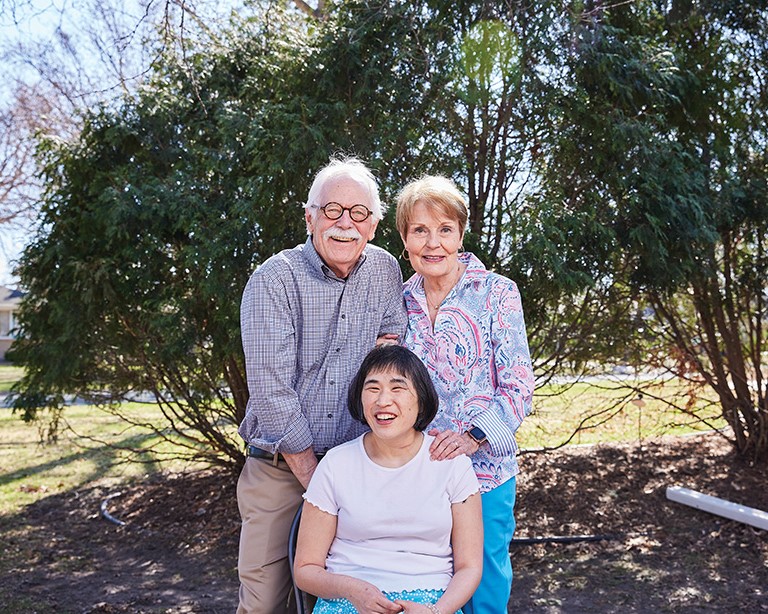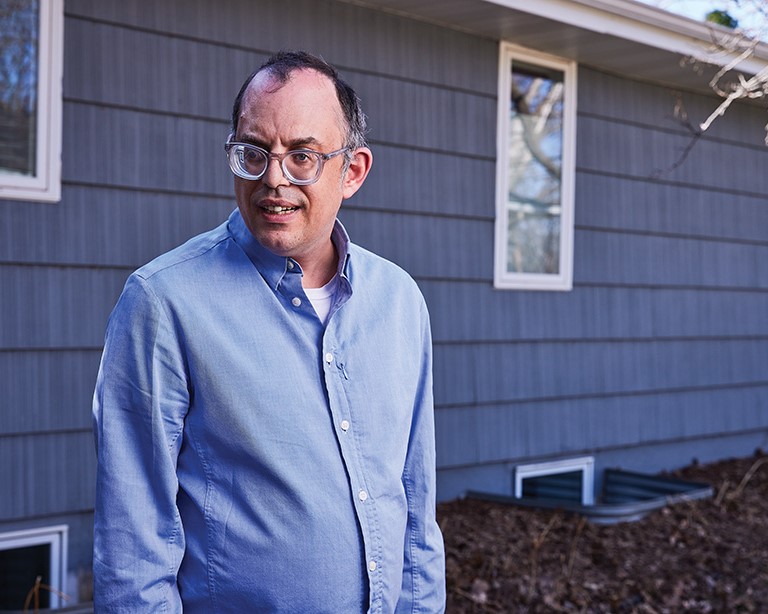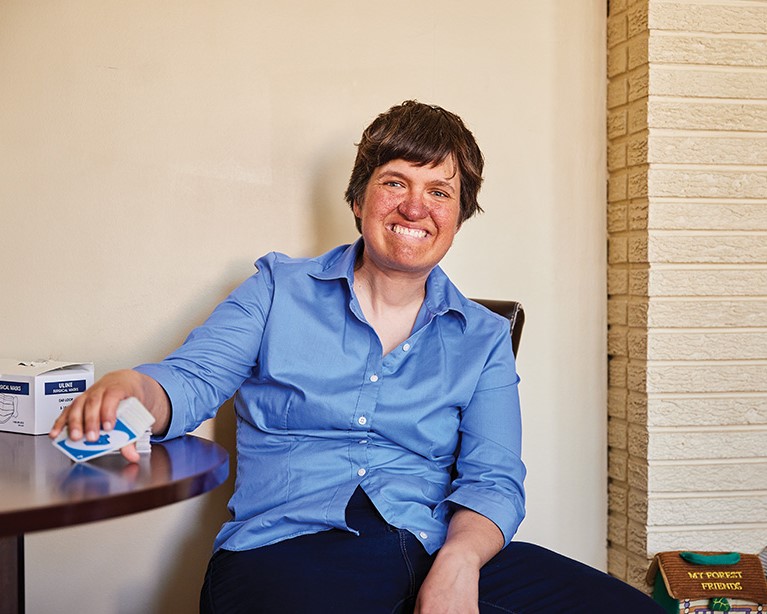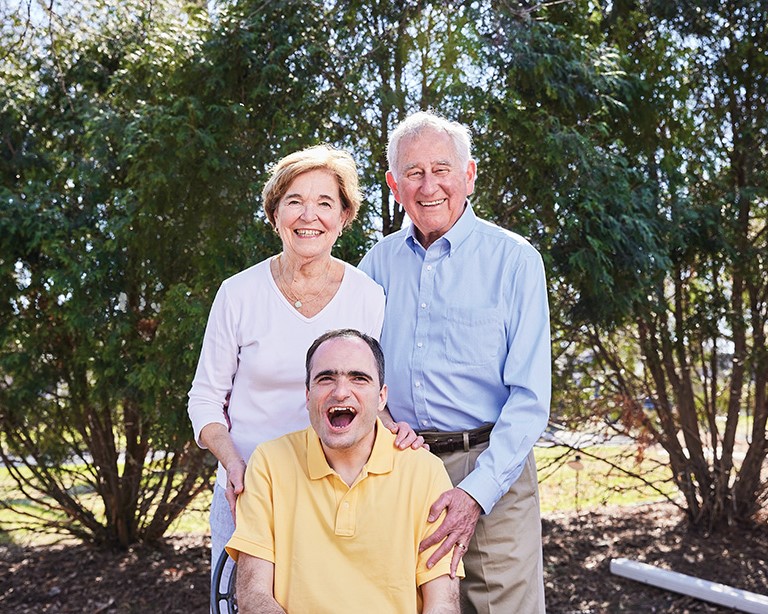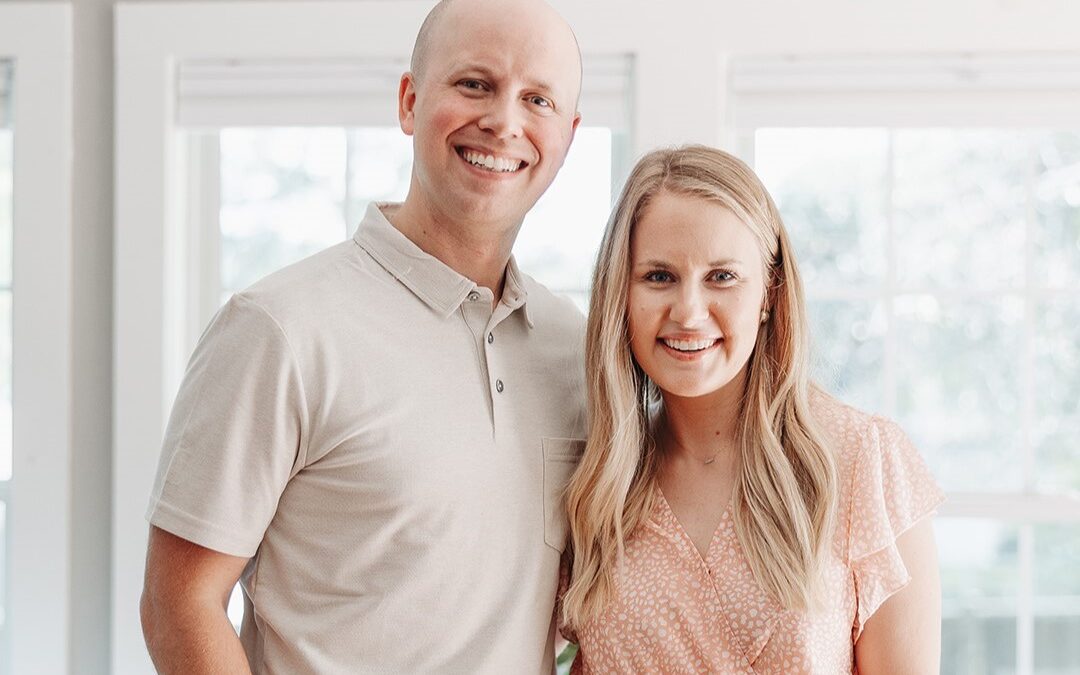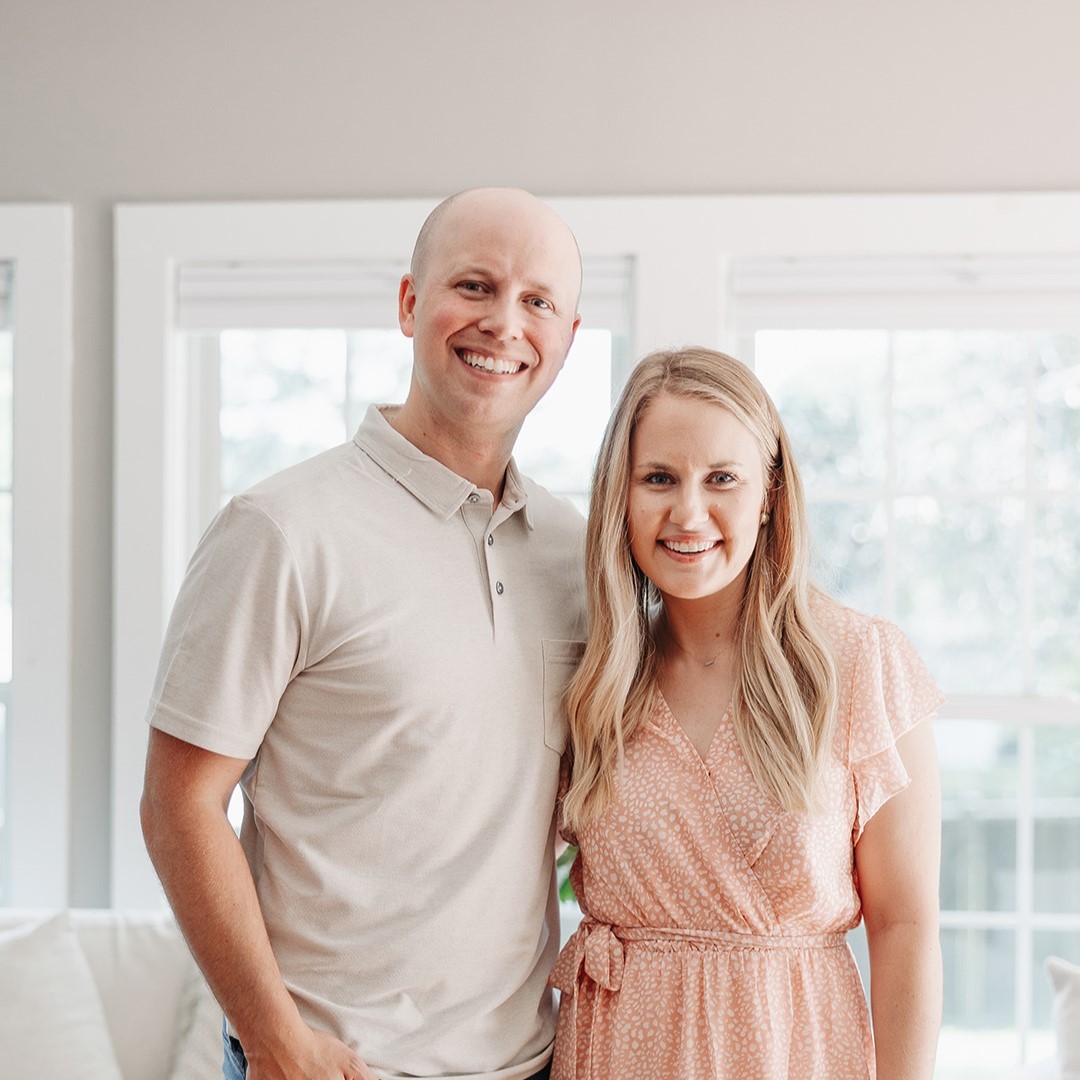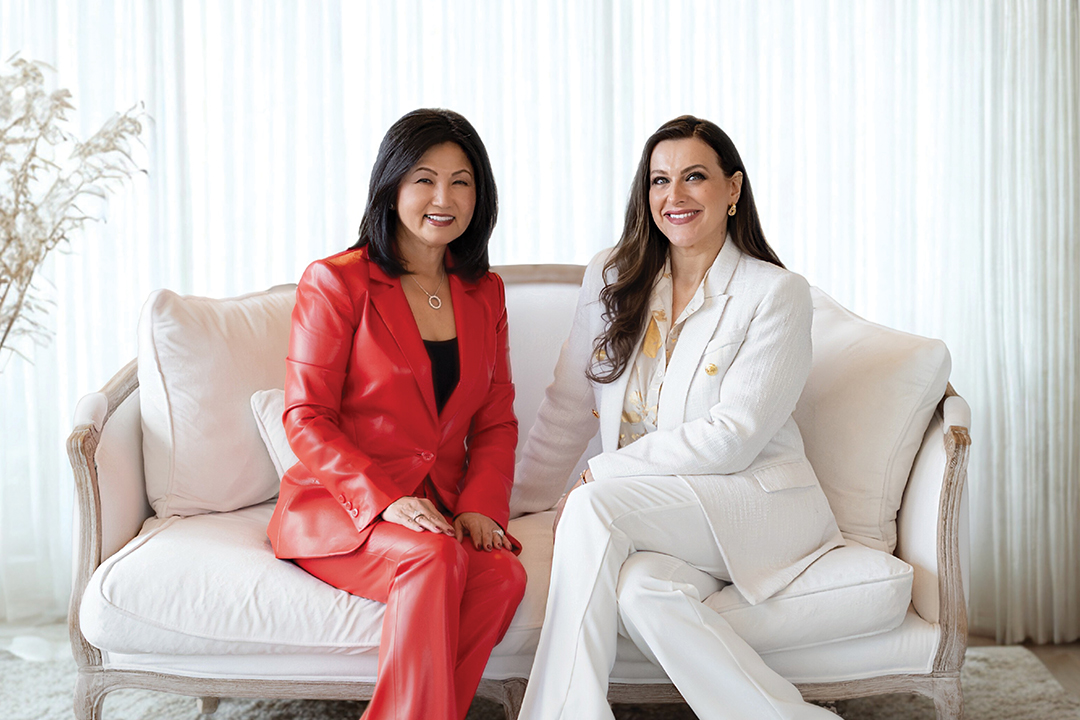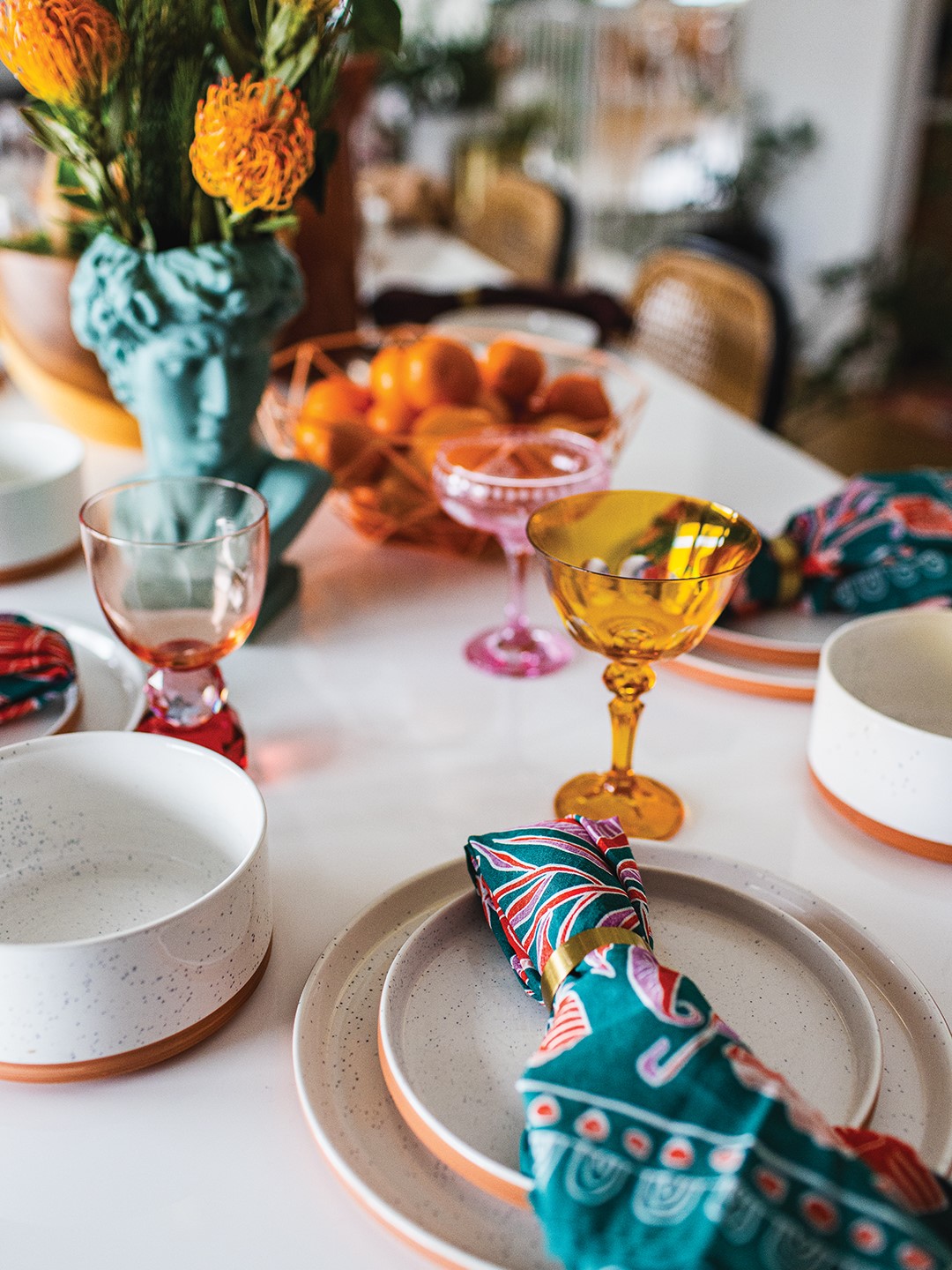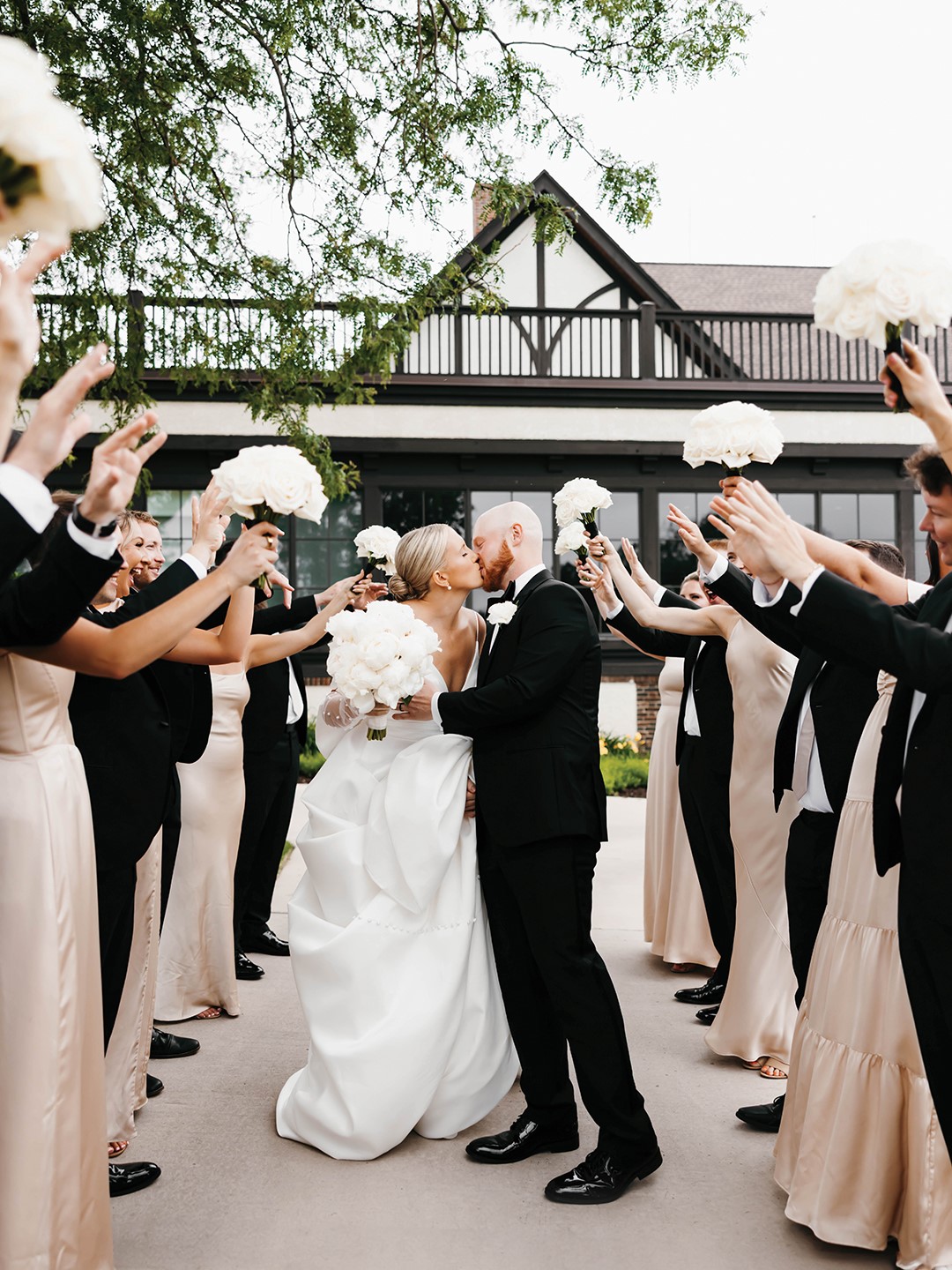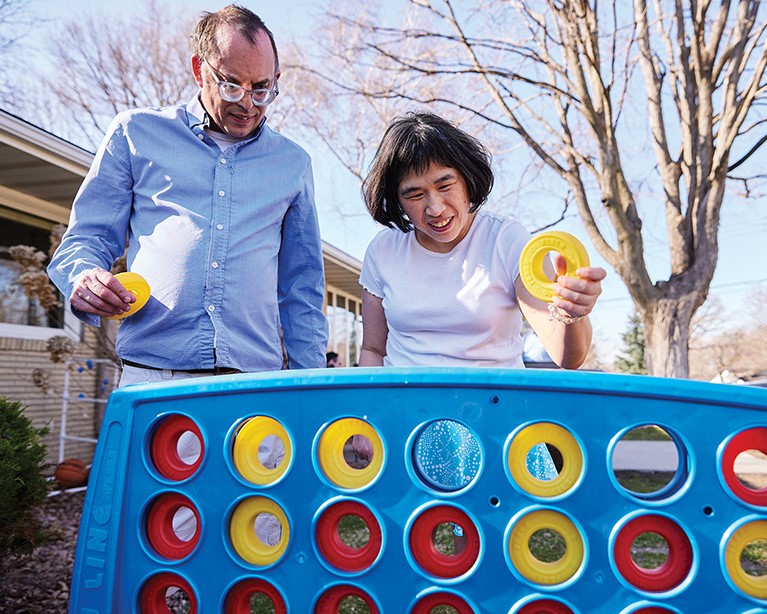
Photos: Chris Emeott
Neighborhood embraces four beloved adults with disabilities.
On any given summer day, passersby will likely see Katie Mueller shooting hoops in her driveway. If you’re lucky, you may see one of her famous trick shots, where she stands with her back to the basket, lobs the ball over her head and sinks the shot.
Katie lives in a group home in Edina with Corbin Leih, Rob Crolick and Leo Nemeth. But the four of them, all adults in their late 30s with various disabilities, are more than a group of residents in a group home—they’ve become family. They’ve lived together for 15 years, and as Rob’s mother, Peggy Crolick, says, “The kids just absolutely have gravitated toward one another, and they really love each other … There are two who function at a higher level, and they watch out for the ones who don’t function at their level. We didn’t realize that would happen.”
- Virgil, Pat and Corbin Leih
- Leo Nemeth
- Katie Mueller
- Peggy, George and Rob Crolick
Pat Leih, Corbin’s mother, says, “They’ve really formed a family.”
If you visit the house, Leo will likely greet you at the door, invite you in and offer a tour. “[Leo] is like the ambassador of the house. He’s Mr. Hospitality,” Peggy says. “He’s just the nicest kid. He’s so polite. I mean, they’re all nice, but he’s just got a manner about him that’s very welcoming.” Leo says he loves living near Braemar, where he likes to walk on the track and read the newspaper. He’s also quite the athlete, playing tennis, floor hockey, softball, basketball and golf in the Special Olympics.
But he’s not the only athlete in the house. Aside from loving basketball, Katie is also a skier and golfer. In fact, she competed in Ireland in 2003, where she won an international championship for the Special Olympics in golf. She also loves the Minnesota Twins, enjoys drawing and is quite the social butterfly; she loves talking to neighbors who walk by the house.
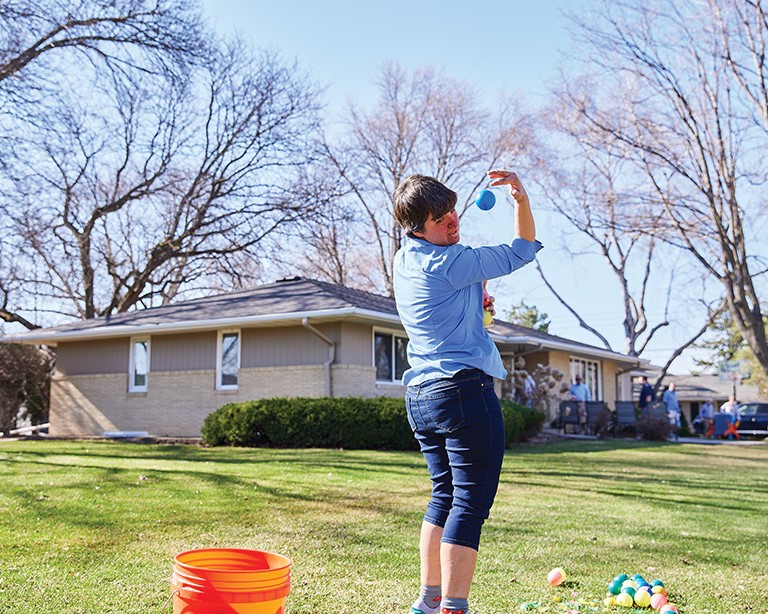
Rob has Angelman syndrome, which leads to physical limitations; he needs assistance walking and is also nonverbal—but that doesn’t mean he doesn’t understand what’s happening around him or the conversations taking place. In fact, his parents say his understanding continues to grow. His big smile and palpable excitement over something he enjoys can light up a room.
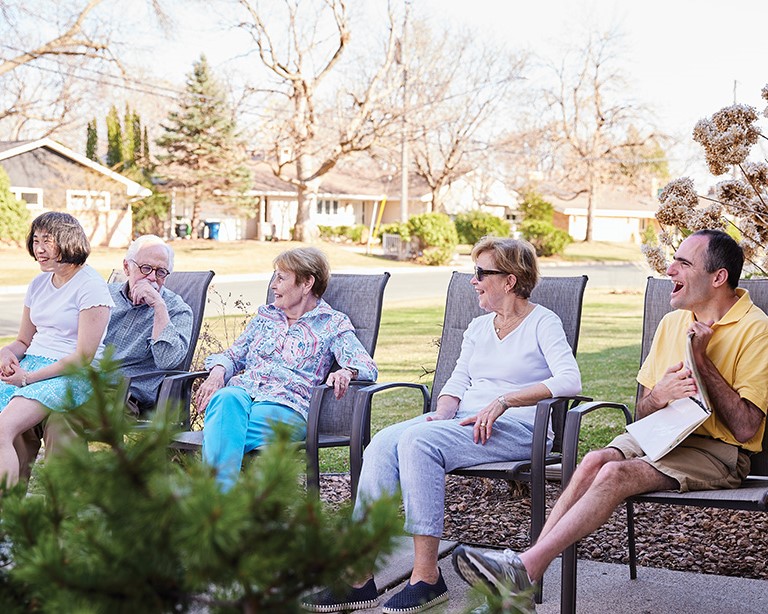
Corbin also has a million-dollar smile and a quiet, joyful presence that you notice the moment you meet her. She has a seizure disorder, and despite her limited (though ever-growing) vocabulary, her mother describes her as social and happy. “She is happy all the time,” Pat says. “If you ask her, ‘How are you doing, Corbin?’ She’ll go, ‘Happy.’ But she is. She just smiles.”
“We wanted [Rob and Corbin] to be in this community [where they grew up]. We thought community was really important, and we were lucky … the community is really supportive.” —George Crolick
The four of them live in their Edina home, which is managed by Living Well Disability Services, an organization that operates 36 homes across the Twin Cities for people with intellectual, developmental and physical disabilities. While 35 of those homes are also owned by Living Well, their home in Edina is different.
This house is co-owned by Rob and Corbin’s parents—George and Peggy Crolick, and Pat and Virgil Leih—all longtime Edina residents. “The kids,” as they’re often referred to, moved into the home in 2008, but the Leih and Crolick families’ journey started years prior. The two families have known each other since their children were at Cornelia Elementary together.

After Rob and Corbin graduated Edina High School and entered their 20s, their parents started working on a plan to help their children thrive throughout adulthood. What resulted was several years of research around the best options for adult disability care, working closely with their case managers at the Minnesota Department of Human Services to secure a license for a private group home, purchasing a property in Edina and renovating it to become ADA compliant and fully accessible. At that point, they interviewed and found two additional housemates for Rob and Corbin; that’s how Katie and Leo joined the house. “We were looking for the right chemistry and really, fortunately got it,” George says. Pat adds that this great chemistry is among the kids as well as all the parents.
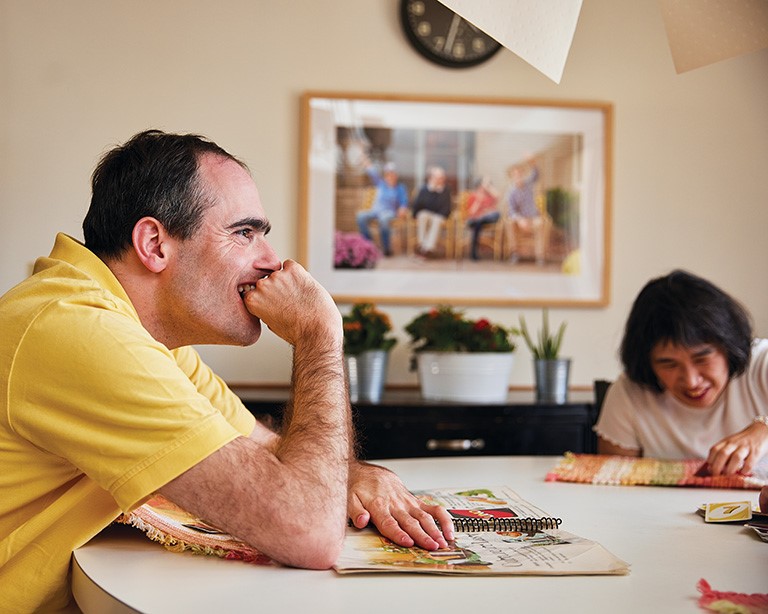
When looking for a house for their children’s group home, it was important to both families that the house be in Edina—where Rob and Corbin had grown up, gone to school, attended church and felt comfortable in the community. “[Rob and Corbin] went to grade school blocks from the current house, and so we wanted to be in this community,” George says. “We thought community was really important, and we were lucky to be able to do all that, and the community is very supportive.”
It’s a community that has continued to embrace them. The four residents are now well-known throughout the neighborhood—especially Katie and Leo, who are both highly social and more likely to be outside and chatting with neighbors.
Kim Sabow lives in the neighborhood; she and her family have lived there for 23 years. Since the group home was established, she’s made a point of stopping and saying hello anytime one of the residents is outside. For Sabow, it was an opportunity to model for her children what it looks like to interact with people who were different from themselves. “People are afraid of things they don’t understand,” she says, noting that in her experience, people often don’t know how to act around those with disabilities. “I didn’t want my kids to be afraid of people with disabilities,” she says.
Over the years, they’ve become relationships that mean a lot to Sabow and her family. “I know [the residents] better than I know the other people on our street,” she says, simply because of their daily interactions. And not just for Sabow, but for her whole family.
Though Sabow’s children are grown and don’t live at home anymore, she says their family text thread often includes mention of fun interactions with the residents that she and her husband experience—like receiving a pile of drawings from Katie, bringing home cookies from the State Fair for Leo or hearing Katie shout good morning from her open window when Sabow’s husband was walking their dog at 5 a.m.
And the Sabows aren’t the only neighbors who regularly stop and chat with the residents. “There are so many people in the area that know the kids,” George says.
“We adore them. We really do,” Sabow says. “I’ve appreciated how much they’ve touched our lives as a family … And, you know, when the moms and the dads come over and they’re out tending to the garden or doing whatever, I think they love it [when] they see people in the neighborhood acknowledging them and interacting with them. I mean, isn’t that what every parent wants?”
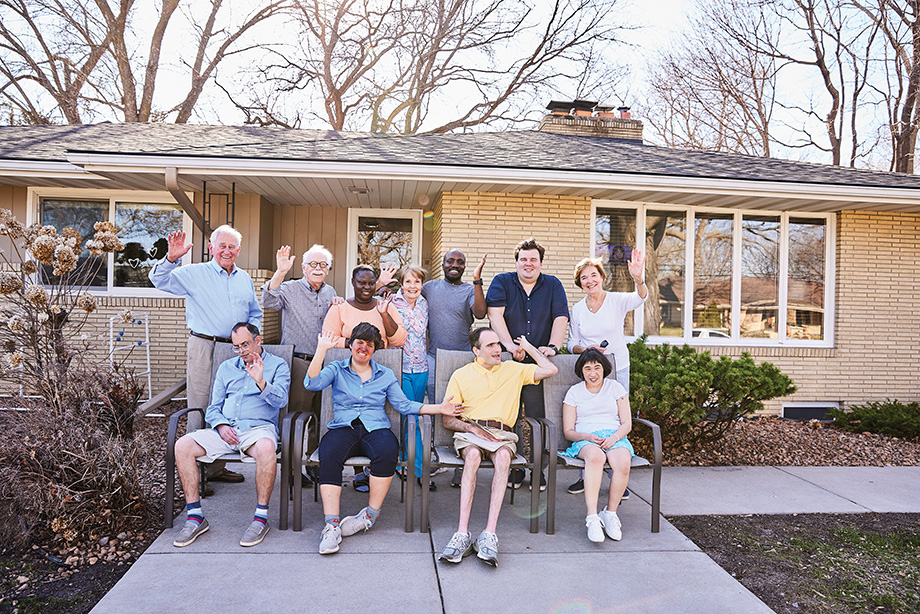
Living Well staff help support the residents. Top row: George Crolick, Virgil Leih, Rose Ahiamadji, Pat Leih, Gregory Odhiambo, Jamie Randall and Peggy Crolick. Front row: Leo Nemeth, Katie Mueller, Rob Crolick and Corbin Leih.
50 Years of Serving the Community
Last year, Living Well Disability Services celebrated 50 years of serving Twin Cities families. It started as Dakota’s Children in 1972; the founders were a group of parents, volunteers and community partners who saw a need in West St. Paul for longer-term care for people with disabilities.
The organization developed a person-centered approach to emphasize the needs of individuals with disabilities and the families that support them. Its mission is to transform the lives of people impacted by disabilities through the delivery of exceptional services. Fifty years in, Living Well owns and operates 36 homes for people with intellectual, developmental and physical disabilities throughout the greater Twin Cities Metro area.
Interested in supporting Living Well? Its annual gala is August 18 at The Depot Minneapolis. For details and to register, visit livingwell.org. There, you can also find both part-time and full-time job openings.
Living Well Disability Services
1168 Northland Drive, Mendota Heights; 651.688.8808
Facebook: Living Well Disability Services
Instagram: @livingwellds

